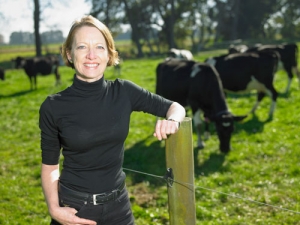At the beginning of April, the Social Progress Index was released ranking New Zealand 5th of 133 countries, accounting for 94% of the global population.
The index is, according to authors Michael Porter and Scott Stern, “a robust and holistic framework for national social and environmental performance that can be used by leaders in government, business and civil society to benchmark success and accelerate progress”. It is the first comprehensive framework for measuring social progress that is independent of, but complementary to, GDP.
And New Zealand is an over-achiever, doing far better in social and environmental performance than its economic peers.
This result reflects the success of the primary sector in everything it has done to boost the economy. In the mid-1980s, for instance, dairy exports were worth about NZ$1.5 billion and per capita income of a New Zealander was about 40% of that of an American. In today’s money, that NZ$1.5 billion is just over $4 billion, which wouldn’t support New Zealanders in the lifestyles to which they have become accustomed.
Last year dairy exports were worth at least $15 billion – almost four times as much as in the in the mid-1980s – and per capita income was almost 66% of America’s.
New money coming into the country has supported employment, which has increased the tax take. The taxes have enabled the Government to pay down the national debt while supporting increased education participation, plus infrastructure development and health – and everything else that goes with a developed country (despite reliance on primary production).
The Social Progress Index recognises what has been done, and also notes that to be an over-performer is a significant achievement “given that it is harder for richer countries to over-perform”.
New Zealand’s worst ranking (34th) is in ecosystem sustainability, encompassing greenhouse gas emissions, water withdrawals as a percentage of resources, and biodiversity and habitat. It is the water aspect that has caused the red flag.
The World Resources Institute has given New Zealand a baseline average water stress score of 1.4, ranging from 2 (medium to high stress) in Auckland to 1.3 in industrial use and 1.1 in agriculture (both in the medium range). Red flags alert to poor performance in comparison with economic peers, but examination of countries with similar GDP to NZ indicates most have been ranked with greater water stress than New Zealand. Comparable figures from the UK, for instance, are 2.6, with agriculture and domestic at 2.7 and industry at 2.5.
New Zealand’s greenhouse gas emissions are so small, contributing less than 0.2% of the world’s GHG, that they aren’t considered in the Social Progress Index. For New Zealand, however, they are a constant source of concern.
Emissions from the agricultural sector accounted for 48% of New Zealand’s total in 2013 and energy had dropped to 39% (industry and waste accounted for 6% each). Between 1990 and 2013, emissions from agriculture increased 14%, and emissions from the energy sector increased by 32%. Energy includes power and transport, and the increase in use reflects an increase in population and lifestyle expectations… which brings us back to economic growth.
Biodiversity and habitat is the third part of the ‘ecosystem score’. The worst result is in critical habitat protection, though terrestrial protection scores well overall, reflecting onfarm QEII covenants, as well as the large part of New Zealand under the Department of Conservation estate.
Without the primary sector, New Zealand could not afford to support society in the way it does – through infrastructure, welfare and education. The Social Progress Index confirms New Zealand is a great country. Farmers, take a pat on the back for your contribution; New Zealand wouldn’t rank so highly without you.
• Jacqueline Rowarth is professor of agribusiness, The University of Waikato.



















